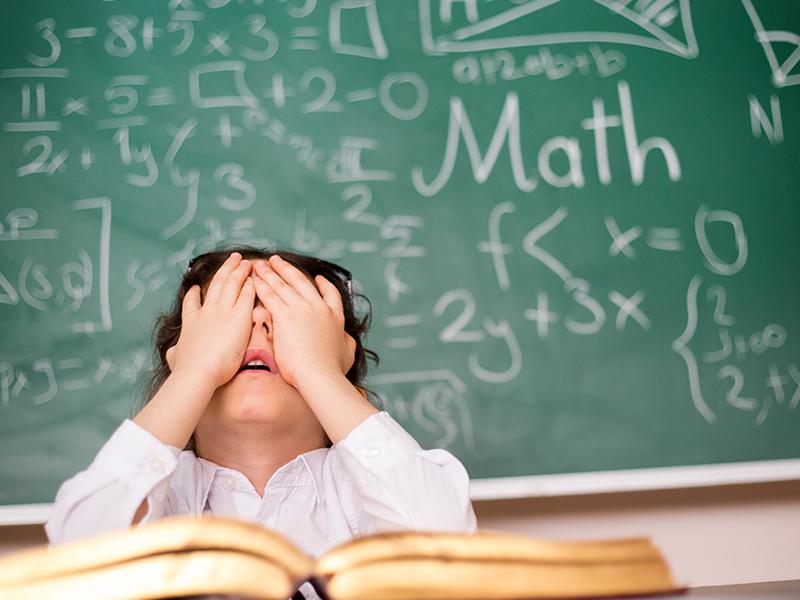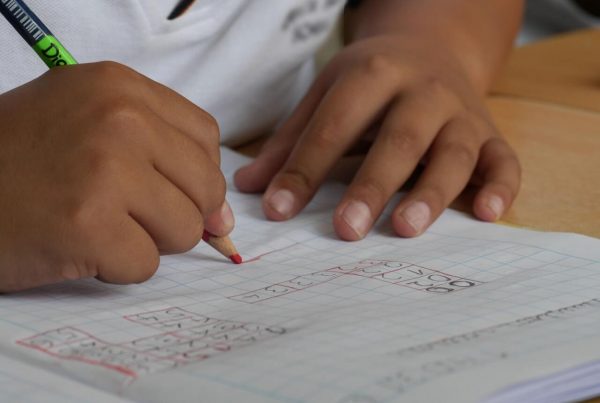
Dyscalculia is a term that covers a wide variety of learning issues related to math. If your child is struggling with math in school, it might mean that he or she has dyscalculia. However, it can be difficult to spot the difference between experiencing dyscalculia symptoms and simply having the ordinary struggles of learning something new. How can you tell the difference?
The signs of dyscalculia will vary depending on your child’s age and level in school. Spotting dyscalculia as soon as possible will help your child learn in a way that makes the most sense for their individual needs, and acquire the strategies to grasp math skills more effectively.
Preschool Dyscalculia: Identifying Numbers and Concepts
Preschool focuses on identifying numbers generally and understanding the concept of describing items with numbers. Thus, children having difficulties with any of the following may be challenged with dyscalculia.
- Learning to count
- Skipping numbers
- Trouble recognizing patterns
- Issues with identifying the concept of counting
- Problems associating the symbolic number with the name of that symbol (“three” is “3”)
Grade School: Recall, Relationships, and More Complex Strategies
As your child gets older, math concepts become more complex. Understanding the relationship between numbers is a key foundation of math problems, such as adding and subtracting. Failing to understand these relationships will cause issues in school for your child. Signs of dyscalculia in grade school include:
- Trouble with recalling very basic math facts
- Using fingers to count rather than using mental math
- Struggling to use formula signs correctly (such as + and -)
- Problems with association and relationship, such as “greater than” or “less than”
Middle School: Math Language and Concepts
In middle school, math skills often focus on practical concepts. This includes things like counting change or keeping score in sports. When your child struggles with math concepts generally, these more complex processes can become a challenge. Here are other signs of a dyscalculia:
- Struggling with math concepts, like commutativity and inversion
- Hard time understanding math “language”
- Avoiding situations that involve numbers in any way
- Difficulty adding things to determine the cost of items
High School: Creativity and Interpretation
As your child grows, the need to understand very basic math concepts increases. Signs of dyscalculia at this level include the following:
- Trouble dealing with things that deal with distance, directions, or speed (may also get lost easily)
- Hard time reading charts and graphs
- Continued problems dealing with money, including calculating a tip
- Trouble applying creativity to math – such as understanding that you can have more than one way to solve a problem
Is There a Test for Dyscalculia?
Observations and your child’s experiences in math can initiate the process for testing to determine if your child has dyscalculia. Psychological and educational testing can further ascertain the types of difficulty a child has with math skills in order to develop a plan of action. A dyscalculia test will show the following areas of math concepts where your child is struggling:
- Quantitative reasoning
- Mental computation
- General computation skills
- Math fluency
At Little Thinkers Center, we offer diagnostic evaluations that you can use to determine whether dyscalculia is affecting your child. We can also develop a plan to work with you and your child to improve their math skills. By learning the best strategies to acquire math concepts, your child can be set up for success for years to come. Learn more by contacting our team today.



